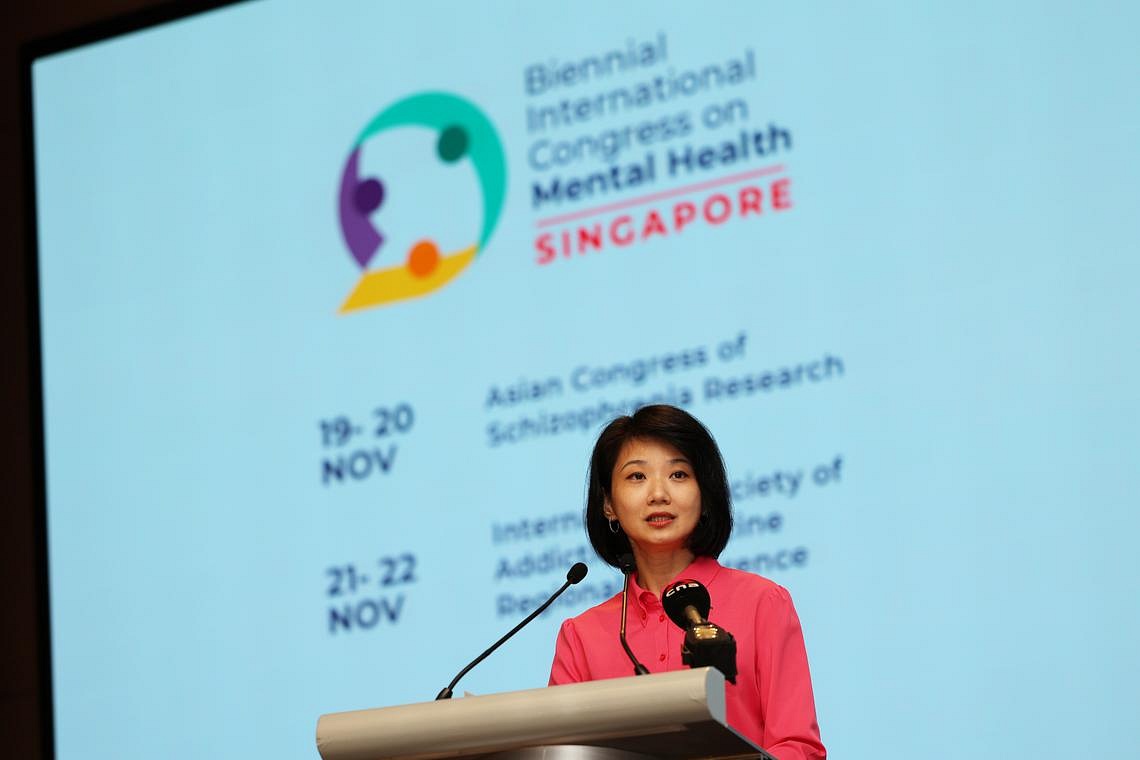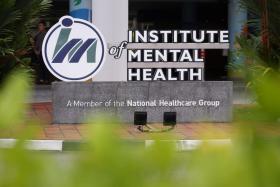6 in 10 S'poreans can recognise mental health conditions: IMH study
Awareness of mental health conditions has grown among Singaporeans, with nearly six in 10 now able to recognise common conditions, while stigma around these issues has also decreased.
The common conditions include dementia, depression and schizophrenia.
This is according to findings from an Institute of Mental Health study released on Nov 19.
The study was announced by Minister of State for Home Affairs and Social and Family Development Sun Xueling at a mental health conference held at One Farrer Hotel.
Given that lack of awareness and fear of judgment are key barriers preventing those with mental health conditions from seeking help, researchers say they are heartened and gratified by the results, which point to a more inclusive Singapore.
The Mind Matters study, first conducted between 2014 and 2015, was done again between 2022 and 2024.
Its aim was to examine public knowledge and awareness of common mental health conditions, as well as the perceptions and stigma associated with them.
The latest results show that 58.9 per cent of Singaporeans were able to recognise five common mental health conditions – dementia, depression, schizophrenia, alcohol abuse and obsessive compulsive disorder (OCD). This is a significant jump compared with 42.3 per cent in the first survey.
Two new conditions, gambling disorder and depression with suicidality, were included in the latest edition of the study.
Taking these two conditions into account, 63.3 per cent of Singaporeans are able to recognise the seven mental health conditions.
“Our first Mind Matters study provided us with baseline information on our population’s knowledge and attitudes towards common mental health conditions. In the last eight years, various mental health awareness and anti-stigma initiatives have been introduced to improve mental health literacy in Singapore. We are gratified that our study findings show that we are moving in the right direction,” said Professor Chong Siow Ann, principal investigator of the study.
It involved 4,195 Singapore citizens and permanent residents aged between 18 and 67 years who were randomly selected from a national administrative database. They were interviewed face-to-face from September 2022 to February 2024 using a short story of a hypothetical person with a mental health condition.
The top three mental health conditions that respondents were able to correctly identify were dementia at 83 per cent, gambling disorder at 77.1 per cent and depression with suicidality at 72.1 per cent.
However, OCD and schizophrenia remained the two least recognised conditions in both editions of the study, although greater strides were made in OCD awareness.
OCD sufferers have obsessive and unreasonable thoughts and fears, and compulsive, repetitive behaviours, while schizophrenia is characterised by psychotic symptoms such as hallucinations and delusions, and also by cognitive impairments.

In the latest edition of the study, 62.3 per cent of respondents correctly identified OCD, more than double the 28.7 per cent in the first edition.
For schizophrenia, 15.1 per cent of those surveyed were able to identify the condition, up slightly from the 11.6 per cent in the previous study.
Associate Professor Mythily Subramaniam, co-investigator of the study, attributed the jump in OCD awareness to increased media coverage and its high prevalence in Singapore.
It is the third most common mental illness in Singapore, with about one in 28 adults having OCD at some point in his or her lifetime.
In contrast, one in 116 people here had a diagnosis of schizophrenia at some point in their lives.
“Because of the low prevalence of schizophrenia, we haven’t targeted it for a campaign in the last few years. What’s typically more targeted is depression and dementia, and there you can see fantastic improvement,” said Prof Mythily.
Ms Porsche Poh, executive director of Silver Ribbon (Singapore), a non-profit organisation that works to combat mental health stigma, said another factor that makes schizophrenia hard to recognise is people tend to link the hallucinations and delusions to the spiritual realm.
“To raise awareness of schizophrenia, we have done online and physical talks. It’s also very important to get persons with lived experiences or their caregivers to share their stories,” she added.
The survey also assessed stigma by measuring the extent to which respondents viewed those with mental health conditions as dangerous or unpredictable and if that was a sign of personal weakness rather than a medical condition, and if respondents wanted to socially distance themselves.
Stigma was measured using a scoring system based on respondents’ agreement ratings for a list of statements, where higher scores signify greater stigma.
Across the three domains measured, stigma scores fell, pointing to an improvement in public perception of those with mental health conditions.
However, the study found that those suffering from gambling disorder and alcohol abuse tend to be perceived as having a sign of personal weakness.
Researchers said this is because excessive drinking or gambling is sometimes viewed as a choice. But there are other factors that predispose people to addiction.
“For example, there could be a family history of alcoholism, or there is a lot of trauma in their childhood, and it’s a very poor way of coping,” said Prof Mythily.
Prof Chong added: “It’s less a factor of choice; for some people, it’s genetics. Some have a biological disposition that makes it less likely for them to exercise control and restraint.”
The researchers said that it would be helpful if public education campaigns around alcoholism and gambling could adopt a more compassionate tone.
“I’m not saying that in any way, gambling or alcoholism is right. We all know it’s wrong. But if somebody is doing it to such an extent, then it’s important that they seek help. If they don’t, it’s going to get worse for them and their families, and it’s going to be bad for society as well,” said Prof Mythily.
Get The New Paper on your phone with the free TNP app. Download from the Apple App Store or Google Play Store now


